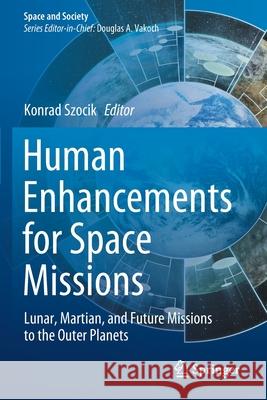Human Enhancements for Space Missions: Lunar, Martian, and Future Missions to the Outer Planets » książka
topmenu
Human Enhancements for Space Missions: Lunar, Martian, and Future Missions to the Outer Planets
ISBN-13: 9783030420383 / Angielski / Miękka / 2021 / 291 str.
Human Enhancements for Space Missions: Lunar, Martian, and Future Missions to the Outer Planets
ISBN-13: 9783030420383 / Angielski / Miękka / 2021 / 291 str.
cena 522,07
(netto: 497,21 VAT: 5%)
Najniższa cena z 30 dni: 501,19
(netto: 497,21 VAT: 5%)
Najniższa cena z 30 dni: 501,19
Termin realizacji zamówienia:
ok. 22 dni roboczych
Dostawa w 2026 r.
ok. 22 dni roboczych
Dostawa w 2026 r.
Darmowa dostawa!
Kategorie BISAC:
Wydawca:
Springer
Seria wydawnicza:
Język:
Angielski
ISBN-13:
9783030420383
Rok wydania:
2021
Wydanie:
2020
Numer serii:
000183683
Ilość stron:
291
Waga:
0.43 kg
Wymiary:
23.39 x 15.6 x 1.65
Oprawa:
Miękka
Wolumenów:
01
Dodatkowe informacje:
Wydanie ilustrowane











